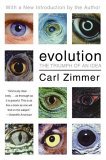![]() [Student post submitted by Swapna Medichetti]
[Student post submitted by Swapna Medichetti]
A group of researchers from Israel conducted an interesting study on human subjects and tried to provide evidence for a signature of facial expressions that is supposedly unique within a family. Before this, many studies relating to this have been done on humans. These studies show proof of facial expressions being heritable in an individual while some focus on how different facial expressions are among individuals. But there have been no reports of studies that throw light on different emotional states of people belonging to the same family. (continue reading below the fold)
They did this by studying the ‘gestalt’ of facial expressions in different emotional states that include thinking, sadness, happiness, anger, surprise and disgust. The most interesting thing about this study is that half the human subjects that they used in the study are blind, by birth. The other half consisted of relatives of the blind individuals, who had a normal vision. Basically, by using various tests and individual interviews, they tried to compare the facial expressions of the blind person in all five emotional states to that of his or her relative who had a normal vision.
 I am assuming the reason behind them using blind individuals as their subjects is to control for the expressions that could have been developed in an individual by learning from people around them, over time. They have also removed the factors in the study that could account for false results. For example, they made sure that the blind subjects did not learn these expressions by touching the face of their relatives. They also made sure that the subjects with normal vision did not imitate the blind subjects.
I am assuming the reason behind them using blind individuals as their subjects is to control for the expressions that could have been developed in an individual by learning from people around them, over time. They have also removed the factors in the study that could account for false results. For example, they made sure that the blind subjects did not learn these expressions by touching the face of their relatives. They also made sure that the subjects with normal vision did not imitate the blind subjects.
The study has 21 blind people, and 30 normal vision people who are related to them. The researchers induced expressions in the subjects by asking them questions that would allow them to feel all the five emotions. For example, if they had to study anger, they asked them to talk about something that they are not very happy about. They documented what they observed in the form of writing and recorded videos while interviewing the subjects.
The study made use of a few computational methods like the in-out family test and the classification test. In the first method, they calculated the frequency at which the blind subject’s facial expression occurred in relation to that of his or her relatives’. In-family represents a positive result where the blind subjects and their relatives show the same face expression. On the other hand, the out-family represents a negative result where the blind subjects do not show the same facial expressions as their relatives. This was done for all the five different emotional states.
In the second method, based on the facial expressions, the blind subjects are classified to his or her family. This was apparently done to differentiate between two different sets of data. They also calculated the heritability in terms of high or low. Both the tests showed a positive correlation between the occurrence of facial expressions of blind subjects and their relatives. Future study can include work on genes that account for these expressions on the face.
Charles Darwin wrote a book called ‘The expression of the emotions in man and animals’, which talks in great details about the heritability of emotions and expressions. The book is available online on the Darwin online website.
Reference:
Peleg, G., Katzir, G., Peleg, O., Kamara, M., Brodsky, L., Hel-Or, H., Keren, D., Nevo, E. (2006). From the Cover: Hereditary family signature of facial expression. Proceedings of the National Academy of Sciences, 103(43), 15921-15926. DOI: 10.1073/pnas.0607551103













2 comments:
Is this research available as a video or was it all on paper? Pretty interesting but I think they should release the video clips with the experimented persons' documented facial expressions, if they haven't already.
My name is Richard Standley I was browsing internet and found your blog. The author did a great job. I will subscribe to your RSS feeds. Thank you for your contribution. I am a web designer myself. And here some examples of the websites that I designed for payday loan canada bad credit loans company.
Post a Comment